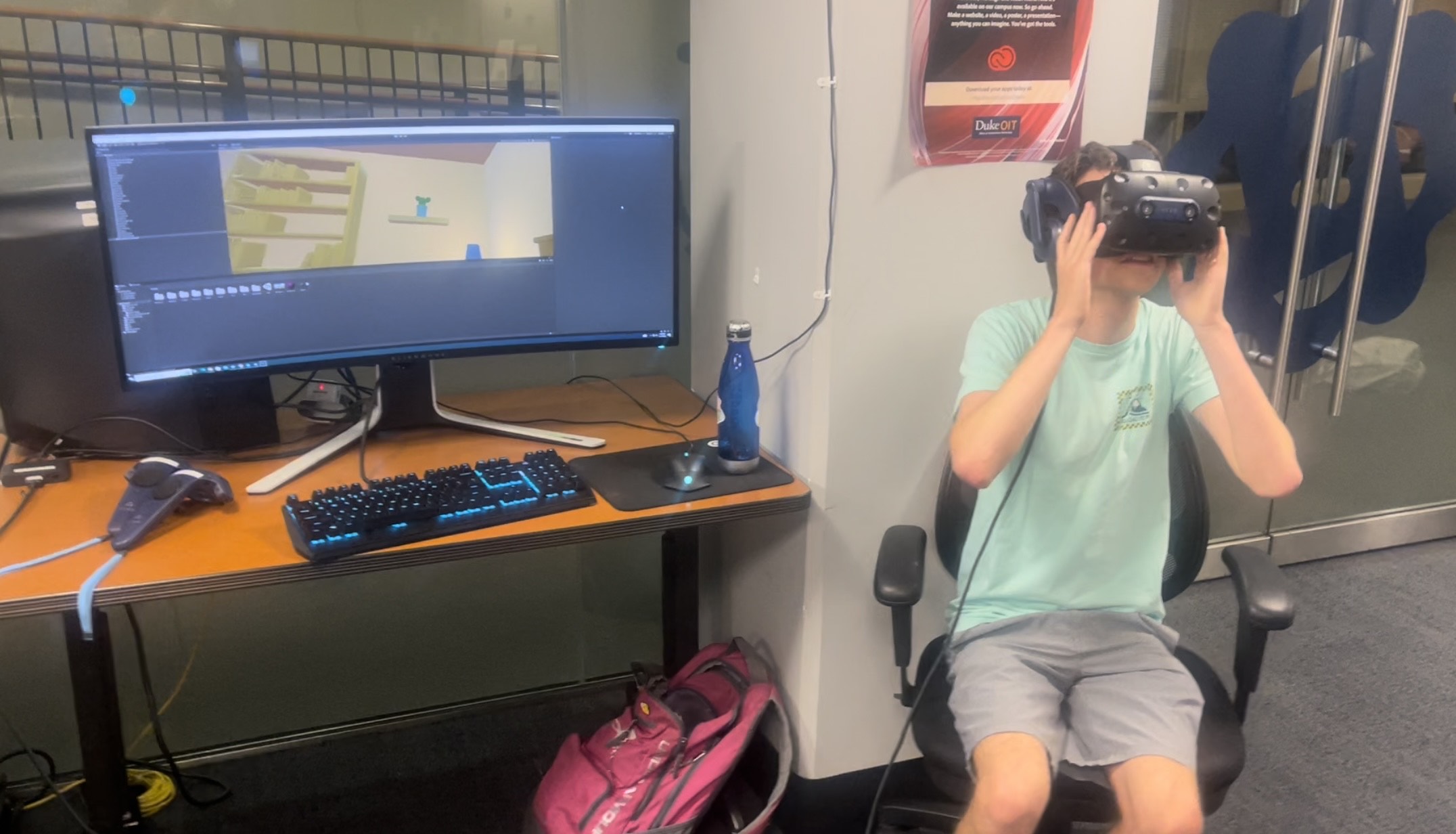Team + Contributors: Zoey Chen, Dave Zelensky
We as humans are shaped by our lived experiences. We are the product of every one of our decisions, adventures, mistakes, encounters, trials, and errors. The inconvenience of forgetting. The forgetting of who you are. This was the inspiration for Aletheia, a virtual reality experience which uses space as a physical manifestation of dementia.
The intentions of this project were not explicitly set on dementia as an illness, but the experience of the world and reality coming apart before you. The user didn’t need to come out of the experience understanding our initial inspiration in a literal sense, but to understand –in a glimpse– the horror of identifying, experiencing, and accepting that reality and who you are is peeling away before your very eyes.
In preparing for our project, we researched the illness itself and the experiences of those with dementia. William Utermohlen, an American figurative artist who lived with and ultimately passed from Alzheimer's disease, heavily inspired this project. Utermohlen was most famous for his self-portraits, which documented with heart-breaking intensity the artist's disintegrating sense of self over the years the disease took his life. What we drew most inspiration from, however, were the paintings he drew before his life changing diagnosis. The Conversation Pieces were mostly biographical pieces of art celebrating his life with his family and friends. Yet, you can see –with hindsight– the early signs of the disease that would later destroy him; the geometry of the rooms seems ever so slightly uncooperative, the colors are just a bit too stark, and the perspective and layers seem to overlap in disconcerting ways. In spite of the extremely normal scene, there’s an undeniable sense of distortion.




















